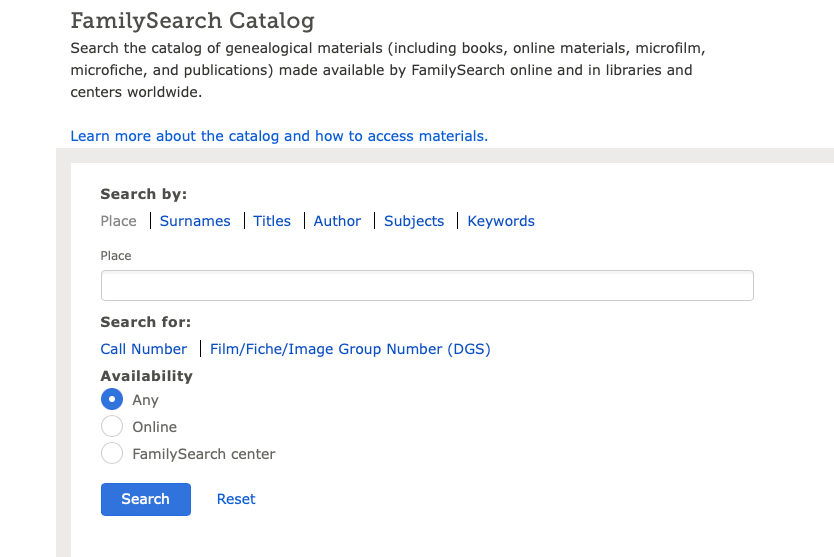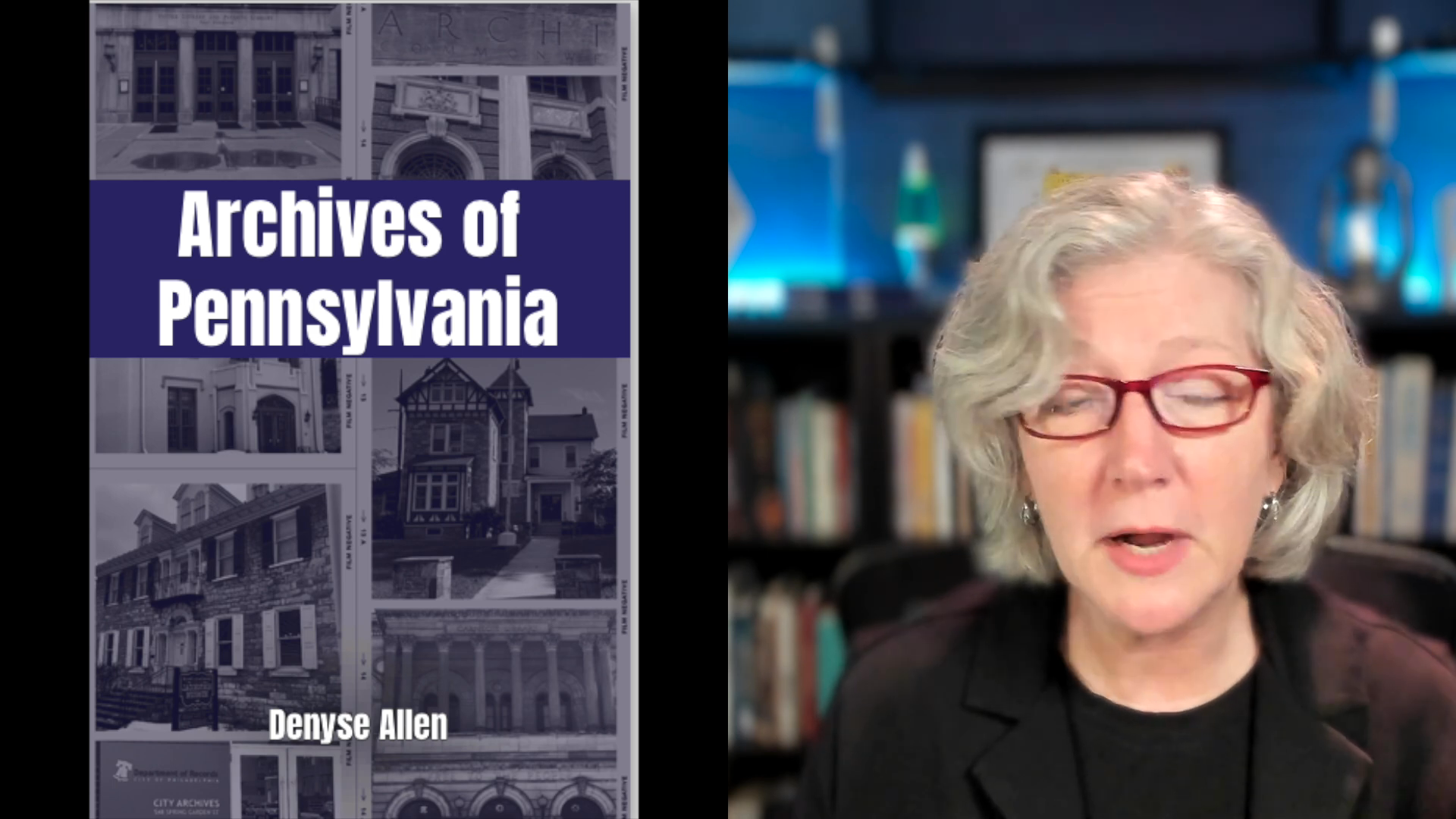Podcast Episode 94: Avoid These 3 Mistakes with Your Genealogy Research in Pennsylvania
Avoid common genealogy mistakes in Pennsylvania! Learn to use county records, collaborate with locals, and keep detailed logs. Includes links to resources.

There are three mistakes genealogists make when they're researching in Pennsylvania. In this post, I'll teach you what those are so you can avoid those same traps.
I've spent the past five years collaborating with genealogists on their Pennsylvania genealogy research. Through this journey, I've observed common mistakes popping up over and over again. To save you time and effort, I'm sharing the top pitfalls and how to avoid them.
Watch the full episode here:
Mistake #1: Not Researching at the County Level
Pennsylvania has a rich history, with 67 counties archiving millions of records. Many genealogists overlook these local records, opting instead to use large genealogy websites and the main search box features. While these tools are excellent for starting out, they can only take you so far.
When you really want to dig deep into the lives of your ancestors, county records are indispensable. The largest collection of these records is housed in the FamilySearch catalog. However, these aren’t always accessible through the main search box on FamilySearch.

How to Access the FamilySearch Catalog
- From the FamilySearch main screen, go to the search bar.
- Click on "Catalog."
- Enter the county you're interested in into the search box for the location.
- Browse through the categorized format to find specific records.
In these records, you'll find information located in various offices such as:
- Register of Wills
- Prothonotary
- Deeds Office
- Tax Assessor
- Civil and Criminal Courts
And these records are where your ancestors' stories are hidden.
Mistake #2: Not Working with Local People

Pennsylvania, our state with almost 350 years of history, is a goldmine of genealogical information. Yet, many researchers gloss over the rich local history and focus solely on online databases. This is a huge oversight given that the state has seen waves of people immigrating in and out over centuries.
Local people and organizations can often provide invaluable insights. Whether it’s understanding who lived in a township, who left, or where specific records are kept, speaking with people on the ground can make a world of difference.
We have over 800 places across the state where records are stored. I’ve compiled all these places in my book, Archives of Pennsylvania. Available on Amazon, this book categorizes archives by both region and type, making it an essential tool for any Pennsylvania-focused genealogy research.
Types of Archives
- Colleges and Universities: Often have expansive collections about local people.
- Courthouses: Where many legal documents and records are held.
- Genealogical and Historical Societies: Rich sources of local information.
- Religious Organizations: Churches and other religious groups usually keep meticulous records on their congregants.

Understanding where to look and who to talk to can be the key to breaking through genealogical brick walls.
Mistake #3: Not Writing Things Down
This mistake is crucial and surprisingly common. As a genealogist, you might rely heavily on online family trees and connected records. While these tools are fantastic, they should not replace detailed note-taking.
Why Keep a Research Log?

Recording your research in a research log is beneficial for several reasons:
- Future Reference: You'll know where you left off and what you discovered.
- Prevent Duplication: Avoid the frustration of retracing your steps.
- Time Management: We're all limited in our time; make the most of it by keeping organized notes.
I personally use a tool called Notion to keep my research log. It helps me stay organized, and I even plan all my podcast episodes and blog posts with it.
Interested in My Research Log?
I offer my research log template in Notion for free. You have the option to pay what you wish for a download, and there's a video guide included to show you how to use it.
Download Research Log Template
If Notion isn’t your thing, spreadsheets or word documents work just as well. The important part is to record your notes.
Bonus: Writing Your Family History
I'm passionate about helping people start writing their family histories. Through my Substack called Chronicle Makers, I share tips and strategies for writing family history. The link is in the show notes if you want to follow along and start writing your family history now.
Conclusion
Avoid these three mistakes—ignoring county records, not working with local people, and neglecting to write things down—will greatly enhance your Pennsylvania genealogy research. Stay organized, be thorough, and most importantly, enjoy the journey of discovering your ancestors' stories.
I'm eager to hear about the amazing discoveries you'll make about your ancestors!
LINKS
- FamilySearch Catalog
- Archives of Pennsylvania Book
- Download Research Log Template
- Follow Chronicle Makers
Your Pennsylvania Ancestors is distributed through the following channels:



Learn all about the history and details of the Your Pennsylvania Ancestors podcast.
Transcript:
There are three mistakes genealogists make when they're researching in Pennsylvania. In this video, I'll teach you what those are so you can avoid those same traps.
My name is Denyse Allen, and I've been collaborating with genealogists for the past five years in their Pennsylvania genealogy research. And I want to share with you common mistakes that I keep seeing over and over again. There are pitfalls that happen in the research, and I want to make sure that you don't fall into those same pits while you're doing your Pennsylvania genealogy research. Mistake number one, and this is by far the most common mistake, not researching at the county level. Pennsylvania has 67 counties, and most genealogists feel like those aren't really necessary in terms of record research.
They're using large genealogy websites and just the main search box on the screen. And for starting in your genealogy research, that's fine. Just use the main search box. But when you get stuck or you want to get deeper into the details of your ancestors'life, the county records are the place to go. The largest collection of those county records is in the family search catalog.
This catalog is not always accessible through the main search box on family search. So I would encourage you to learn how to use this catalog. This is how you get to it. You go from the main screen up to the search bar and then click on catalog. You're going to want to type in the county that you're interested in in the search box for the location, and then scroll through the records in that categorized format.
You'll be able to find records particular to our register of Will's office, particular to our patthonetary office, in particular to our deeds office. We have all additional county offices, such as the tax assessor, and of course, the civil and criminal courts. And in those records are your ancestors. And I provide a lot of those tips through my Pennsylvania ancestors membership. If you're confused on how to use that, I can walk you through it.
Mistake number two is not working with local people. So Pennsylvania, again, 67 counties, but also almost 350 years of history. We are a huge state with a deep, rich history, and people tend to just gloss over this when they're doing their genealogy research here. We have had millions of people immigrate into the state, immigrate out of the state, and you're going to want to talk to the people on the ground who know who came into their county, who came into their township, who came into their community, who left, and the records that they left behind. We have over 800 places across the state where we've stored these records.
I've collected all these places in my book, Archives of Pennsylvania. This book is available on Amazon. It's an incredibly reasonable price. I would encourage you, if you're doing Pennsylvania research and you're looking for unique records on your ancestors, or you're trying to break down a brick wall, to check this book out. I've got the archives in this book grouped by both regions where they are within the state, and by the type of archive that it is.
So we have colleges and universities that have a lot of records on the people that lived here. We also have our courthouses, our local genealogical and historical societies, as well as religious organizations. So they'all places where you're going to find records on your ancestors. And the way you would access them varies by organizations. And I give you guidance in the book archives of Pennsylvania.
Now, mistake number three that genealogists make in terms of doing their research, this is in particular to Pennsylvania. This is no matter where you're researching, and that mistake is not writing things down. So this is a huge issue for most genealogy researchers. They keep everything on these online family trees and connect records, which is fantastic. But they're not taking extensive notes or sharing those notes with their friends and family.
I know this is advice that comes out a lot when it comes to genealogy research, but recording your research in a research log is beneficial both for you now and your future self. Who is going to come back and look at this research and wonder where you left off or what you discovered and you don't want to repeat it all over again. We're all limited in our time and availability. I have come up with a research log in a product called Notion. I love notion.
It helps keep me organized, and it's, in fact what I use to plan these podcast episodes as well as compose all the blog posts and articles that I post on PA ancestors.com dot. So if you want my research log a notion, I actually give it out for free. I consider it so necessary for genealogists. I don't even charge you for it. You have the option to pay what you wish for a download, and the link is in the show notes for that research log.
And within the research log is a video to show you how to use it. If you don't like using notion, and I do have a review there, or someone who just did not like it, that's totally fine. Use an Excel spreadsheet, use a word document, use whatever works for you. Just record your notes with your genealogy. Here is what my research log looks like in notion for one of my family lines.
This is my Curry family line, which was located in Montgomery County, Blair County, Center county and Clearfield county, and I'm currently working on figuring out the ancestor for Robinson Robert Curry, who was born about 1826 in Clearfield county. There doesn't seem to be any direct ties to any of the other Curry families that live in that county, but this has been a problem I've been working on for a little while, and I've been made sure to keep a detailed log of every resource that I've looked at in regards to this research so that I don't retrace my steps. And it's also allowed me to make connections across different resources and to note which names keep coming up often. And the number one thing I'll be featuring in upcoming videos on my YouTube channel is on how to write family history. I believe everyone should start writing their family history today if, if they haven't started, and I'll be including tips and strategies with that through something that I call Chronicle makers.
I've been writing about it on my substack called Chronicle Makers. You'll find that at chroniclemakers dot substack.com dot. The link is in the show notes if you want to follow along and start writing your family history, and I hope to motivate you and inspire you to start doing that now in 2024 again on my YouTube channel. So this is Denyse Allen again with PA ancestors and Chronicle makers, and I look forward to hearing about your discoveries of your ancestors.
